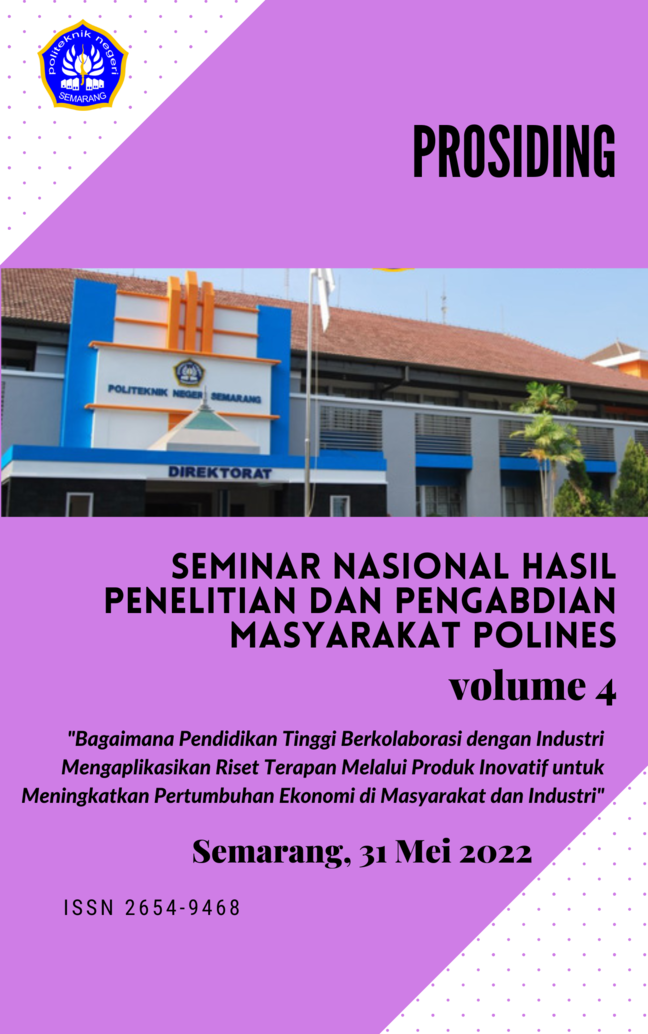MODEL RECOVERY KINERJA INDUSTRI PERHOTELAN DALAM MENDUKUNG PARIWISATA KREATIF DI JAWA TENGAH DAN DIY SEBAGAI UPAYA KETANGGUHAN EKONOMI MASYARAKAT
Keywords:
managerial work efficacy, innovative altruism, work team strength, rediness to change, business performanceAbstract
This study aims to determine the antecedent variables that affect business performance and to determine the role of innovative altruist variables in mediating the relationship between managerial work efficacy and business performance. The object of this research is five-star hotels in Central Java and the Special Region of Yogyakarta. The sample of this research is the general manager of each research object as the leader and main decision maker in dealing with the Covid-19 pandemic situation and the new normal era. Methods of data collection by distributing questionnaires, interviews, observation and literature study. The sampling method used purposive sampling. The data were analyzed using the Structural Equation Modeling technique. Based on statistical results, the six hypotheses that have been proposed show that five hypotheses have a significant positive effect on all relationships between variables and one hypothesis has no effect. The indirect effect of independent variables on business performance resulted in two strategies, namely linking managerial work efficacy to business performance through innovative altruism and linking innovative altruism to business performance through the strength of the work team. The dominant influence between variables is shown from the relationship between the strength of the work team on readiness to change.
References
Alwisol. (2009). Psikologi Kepribadian edisi revisi. Malang: UMM Press.
Bandura, A. (1994). Self-efficacy (Vol. 4). San Diego, CA: Academic Press.
Bandura, A. (1997). Self-efficacy: The exercise of control. New York:: W.H. Freeman.
Bunderson, J. S., & Sutcliffe, K. E. M. (2002). Comparing alternative conceptualizations of functional diversity in management teams Process and performance effects. Academy of Management Journal, 45(5), 875-893.
Cohen, S. G., & Bailey, D. E. (1997). What makes teams work Group effectiveness research from the shop floor to the executive suite. Journal of Management, 23(3), 239-290.
Damanik, Y. R., Lumbanraja, P., & Sinulingga, S. (2020). The Effect of Talent Management and Self-Efficacy through Motivation toward Performance of Population and Civil Notice of Simalungun District. International Journal of Research and Review, 7(1).
Dody, S., Karnowahadi, & Endang, S. (2021, 2021/11/30). Probability Model for Looking for a Job Educated Job Seeker at the Labor Market in Central Java Province (Sakernas Data). Paper presented at the Proceedings of the International Conference on Management, Business, and Technology (ICOMBEST 2021).
Donohoo, J. (2017). Collective teacher efficacy research: implications for professional learning. Journal of Professional Capital and Community, 2(2), 101-116. doi: 10.1108/jpcc-10-2016-0027
Eggers, F., Kraus, S., Hughes, M., Laraway, S., & Snycerski, S. (2013). Implications of customer and entrepreneurial orientations for SME growth. Management Decision, 51(3), 524-546. doi: 10.1108/00251741311309643
Ferdinand, A. (2014). Metode Penelitian Manajemen: Pedoman Penelitian untuk Penulisan Skripsi Tesis dan Disertasi Ilmu Manajemen. Semarang: Undip Press.
Ghozali, I. (2012). Model Persamaan Struktural: Konsep dan Aplikasi dengan Program Amos 22.0 Update Bayesian SEM. Semarang: Badan Penerbit Undip.
Gutiérrez-MartÃnez, I., & Duhamel, F. (2019). Translating sustainability into competitive advantage: the case of Mexico”™s hospitality industry. Corporate Governance: The International Journal of Business in Society, 19(6), 1324-1343. doi: 10.1108/cg-01-2019-0031
Hair, J. F., Black, W. C., Babin, B. J., & Anderson, R. E. (2014). Multivariate Data Analysis. London: Pearson Education Limited.
Jansen, O. (2002). Transformationeel leiderschap en innovatie fwerkgedrag van medewerkers: een kwestie van benaderbaarheid van de leider. Gedrag & Organisatie, 15, 275-293.
Kaakeh, A., Hassan, M. K., Van-Hemmen, S., & Hossain, I. (2020). Understanding self-efficacy and performance of salespersons in Islamic banking. Journal of Islamic Accounting and Business Research, 11(5), 973-988. doi: 10.1108/jiabr-10-2018-0160
Kao, R.-H. (2017). Task-oriented work characteristics, self-efficacy, and service-oriented organizational citizenship behavior: A cross-level analysis of the moderating effect of social work characteristics and collective efficacy. Personnel Review, 46(4). doi: 10.1108/PR-08-2015-0234
1108/PR-02-2016-0040
Kaur, R., & Randhawa, G. (2020). Supportive supervisor to curtail turnover intentions: do employee engagement and work”“life balance play any role? Evidence-based HRM: a Global Forum for Empirical Scholarship, 9(3), 241-257. doi: 10.1108/ebhrm-12-2019-0118
Lin, C.-P., Baruch, Y., & Shih, W.-C. (2011). Corporate Social Responsibility and Team Performance: The Mediating Role of Team Efficacy and Team Self-Esteem. Journal of Business Ethics, 108(2), 167-180. doi: 10.1007/s10551-011-1068-6
Lyons, P., & Bandura, R. (2019). Self-efficacy: core of employee success. Development and Learning in Organizations: An International Journal, 33(3), 9-12. doi: 10.1108/dlo-04-2018-0045
Northousen, P. G. (2010). Leadership: Theory and practice (5th ed.). CA: Sage.
Sulistiyani, E., & Ferdinand, A. T. (2018). Value Oriented Developmental Interaction Capability: A Driver for Teamwork Performance. Business: Theory and Practice, 19(0), 300-308. doi: 10.3846/btp.2018.30
Vancouver, J. B., & Kendall, L. N. (2006). When self-efficacy negatively relates to motivation and performance in a learning context. J Appl Psychol, 91(5), 1146-1153. doi: 10.1037/0021-9010.91.5.1146






